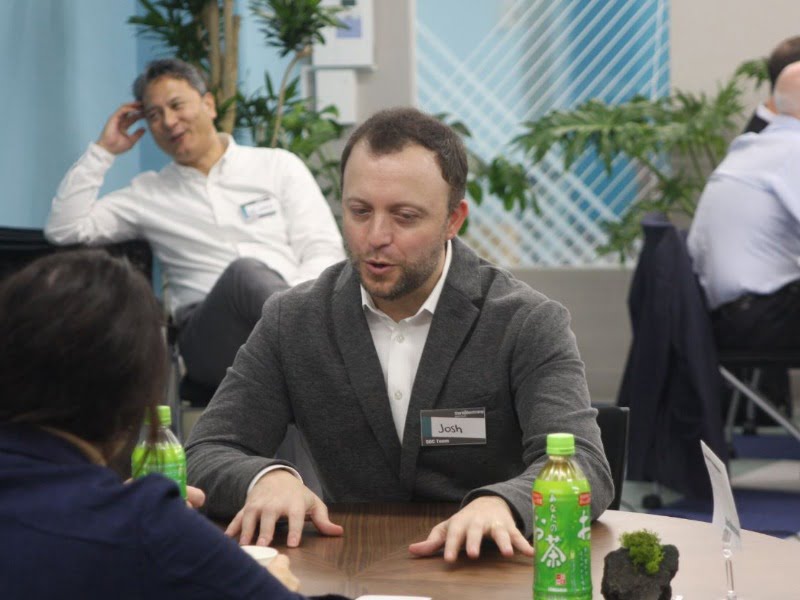The Japan Innovation Ecosystem is characterised by a continued series of government support initiatives for startups, entrepreneurs and ecosystem enablers, a steadily growing participation by Japan’s corporate sector, and a more recent influx of foreign tech companies.
Competition is heating up across various cities and prefectures as they establish new programs and services to attract the best local and global startups, scale-ups and other generally innovative companies looking to establish themselves in Japan.
Starting at the very top, the Cabinet Office of the Prime Minister, Japan has decided it has a mission that includes the creation and nurturing of more unicorn companies. The Cabinet Office has unveiled a new scheme that will select up to three cities which will act as the official startup and innovation hubs for the country.

In response, governments, corporations and educational institutions have unleashed various campaigns to plant their respective flags in the ground in a claim to be the innovation capital of Japan.
Likely nominees include the obvious Tokyo, the up and coming Fukuoka city in Kumamoto prefecture, and in the Kansai region, Osaka, Kyoto and Kobe are all potential candidates.
Besides government support, corporate Japan has become increasingly active in the startup ecosystem with record numbers of Corporate Venture Capital, Open Innovation programs and corporate-supported accelerator programs running across the country.
Venture Capital in Japan is also on the move. In the five years leading up to 2018, funding for startups in Japan doubled. A record of US$3.8 billion was invested in Japan last year, and the trend seems to be a continuation of this growth as both the number of domestic startups increases and more foreign startups enter the market.
The top tier of Japan Inc now boast Open Innovation programs or events as standard practice, perhaps most notably the NTT Data Open Innovation competition in Tokyo.
Global brand accelerator programs are also popping up, interestingly in the Kansai region 500 Startups, Google Plug & Play and the Startupbootcamp program by Rainmaking Innovation from Europe all have a presence in Kobe, Kyoto and Osaka cities respectively.
The latter is an example of a hybrid “startup-corporate engagement program” that works to bring mature startups and scale-ups from around the world to collaborate with seven large Japanese corporate giants: Hankyu Hanshin Corporation, Dentsu, JR West, The Yomiuri Shimbun, JT Group, SMBC and Sakura Internet.
Co-working spaces have long been present in Japan in different forms, but with WeWork entering the market as aggressively in Japan as anywhere else, local real estate players have also launched startup co-working space brands. These include, for example, the Mitsubishi Fudosan group in Tokyo, or the Hankyu Hanshin group co-working space GVH#5 in Osaka.
Japan is home to two of the largest business centres in the world; by gross domestic product, Tokyo is ranked number one globally, and the Kansai region (including Osaka, Kyoto, and Kobe areas) is ranked at number seven. As a source of potential customers, Tokyo is again ranked number one in the world, with Kansai just outside the top ten at number 12.
Osaka city has been ranked at number four and Tokyo at number seven by the 2019 Global Liveability Index which has been released by the Economist Intelligence Unit. Osaka ranked only behind only Vienna, Melbourne and Sydney.
The Index examines over 30 different factors across five categories: stability, healthcare, culture and environment, education, and infrastructure.
Japanese universities are now including startup and innovation related programs in formal curriculum, and the federal government has invested heavily in the commercialisation of research, notably via the establishment of relatively large venture capital funds at select campuses, including Tokyo and Osaka universities.
Innovation districts and precincts are also under development, most recently the Umekita project, a seven hectare area in central Osaka that is being re-purposed specifically as a place for industry, academia and government to collaborate.
The area is to feature a large percentage of greenery to create a genuinely pleasant atmosphere where nature meets advanced technologies of AI, IoT and Big Data for the natural creation and development of products, businesses and services that improve the quality of life in the city.
Joshua Flannery is the CEO of Rainmaking Innovation Japan and managing director of Startupbootcamp SCALE Osaka. His is also a director of InnovationDojo.com.au. He has previously been a Director at the Sydney Startup Hub.
Do you know more? Contact James Riley via Email.
